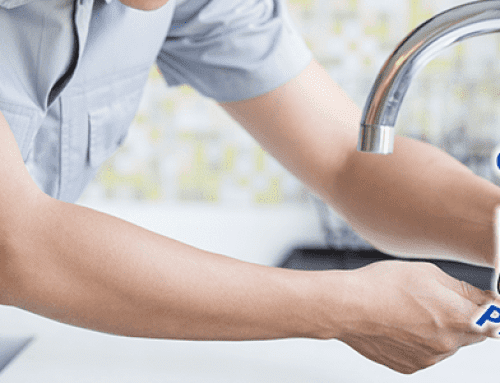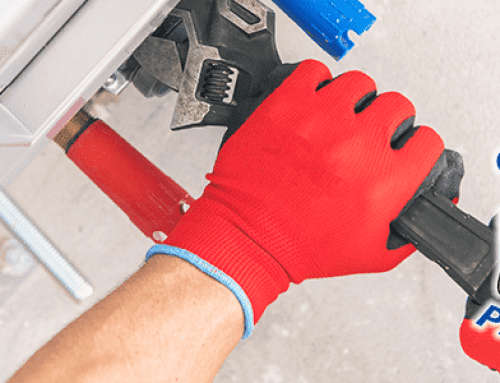Understanding the Differences Between Copper and PVC Piping for Your Plumbing Needs
One of the essential components of any plumbing system is the pipes that transport water and gas. It is important to understand the differences between copper and PVC piping to make an informed decision for your home. Conyers Plumbing is a local plumbing company located in Hillsborough County, FL, and we want to help you make the right choice when it comes to selecting the best piping for your plumbing needs.
1. Material Composition
Copper pipes are made of a naturally occurring metal. They are durable and can withstand high pressure and temperatures. Copper piping is popular for cold and hot water supply lines, plumbing systems in commercial and residential properties, and HVAC systems. Copper pipes are more expensive than PVC pipes.
PVC pipes are made of PVC (polyvinyl chloride), a synthetic material. They are lightweight, easy to install, and resistant to chemicals, corrosion, and abrasion. PVC piping is primarily used in residential water supply lines, rainwater harvesting, irrigation systems, and sewer systems. PVC pipes are more affordable than copper pipes.
2. Lifespan
Copper pipes have a longer lifespan than PVC pipes. They can last up to 50 years or more with proper identification, and maintenance. Over time, copper can develop pinhole leaks due to corrosion caused by acidic water, leading to reduction in flow and water pressure. Copper pipes require less maintenance than PVC pipes, and due to their durability, they are less likely to break or crack because of ground movement, freeze-thaw cycles or extreme temperatures.
PVC pipes have an estimated lifespan of 20-25 years. They are vulnerable to degradation caused by exposure to sunlight, high temperatures, and chlorine in water. PVC pipes may also become brittle and crack in cold temperatures. PVC pipes require regular replacement and maintenance, leading to additional costs in the long run.
3. Installation of Copper and PVC Piping
Copper pipes are harder to install than PVC pipes, and require skilled professionals. Copper pipes rely on soldering which requires heat to melt metal that is then applied to joints. This method requires expertise as it is prone to improper sealing or leaks, which can lead to long-term issues with your plumbing system. Additionally, copper pipes are heavier and may require additional support to the structure.
PVC pipes are easy to install, lightweight, and flexible. They are cut with specialized tools and can be assembled quickly with solvent cement. PVC pipes require less expertise to install because the solvent welds create a water-tight seal that doesn’t require heating or soldering.
4. Cost of PVC Piping and Copper
Copper pipes are more expensive than PVC pipes. Copper can cost up to three times more than plastic pipes per foot. Additionally, as copper is a scarce resource, the prices for the metal can fluctuate rapidly depending on global demand and supply.
PVC pipes are less expensive than copper pipes. They are a cost-effective alternative for homeowners and commercial properties looking for a budget-friendly plumbing solution. PVC pipes can be up to ten times less expensive than copper pipes.
5. Environmental Impact
Copper is a natural material that can be recycled and reused for different products. However, copper mining and production processes can cause environmental damage, including soil and water pollution.
PVC is a synthetic material that is not biodegradable, and incineration can generate toxic and harmful pollutants. However, recycling PVC pipes can prevent them from ending up in landfills and support a circular economy.
6. Health Risks
Copper pipes pose no health risks when it is used in plumbing systems. Copper is a natural antibacterial material and can inhibit the growth of harmful microorganisms. Copper piping can also improve the taste of water by removing minerals and chemicals.
PVC pipes do not pose any direct health risks to people or the environment. However, some studies suggest that the chemicals used in certain PVC products can leach into water, leading to concerns about affecting the endocrine system.
7. Maintenance of Copper and PVC Piping
Copper pipes require little maintenance and are less prone to issues caused by exposure to the environment. Copper pipes have a natural resistance to fire and do not produce toxic fumes.
PVC pipes require more maintenance than copper pipes. They can become brittle over time, leading to cracks and breakages. PVC pipes are not resistant to fire, and they can produce harmful toxins when exposed to high temperatures.
8. Applications
Copper pipes are highly versatile and can be used for various applications, including water supply lines, heating and cooling systems, gas piping, and fire sprinkler systems.
PVC pipes are primarily used for water supply lines, drainage systems, irrigation systems, and underground electric cable insulation.
9. Conclusion
Copper and PVC piping have their own unique benefits as well as drawbacks. Selecting either one will depend on various factors, including budget, location, and usage. Conyers Plumbing is here to help you make the right decision for your plumbing needs, and our experienced professionals can provide consultations to assess your requirements and provide tailored solutions.
Conyers Plumbing is a local plumbing company located in Hillsborough County, FL, providing high-quality plumbing services, including repairs, maintenance, and installation. Contact us today to learn more about how we can help you with your plumbing needs.




